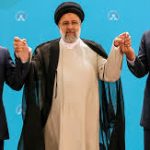Introduction
The year 2025 has become a turning point for global politics and international relations. With shifting alliances, energy transitions, and rising technological competition, the traditional world order is undergoing unprecedented transformation. For countries in the Middle East, particularly Kuwait, these changes carry profound implications for diplomacy, trade, and regional security. From the growing influence of Asia to the realignment of Western powers, the global landscape is being reshaped in ways that will define the next generation.
The Decline of Unipolarity
For decades, the United States enjoyed unchallenged dominance in global affairs. However, 2025 reflects a multipolar reality. China’s expanding influence in trade, technology, and infrastructure investments has positioned it as a rival superpower. Russia, despite economic sanctions, continues to assert itself militarily and diplomatically. Meanwhile, the European Union seeks to balance its economic clout with political cohesion, while emerging economies in Africa, South America, and the Gulf states increasingly demand a seat at the global table.
The Middle East’s Strategic Role
The Middle East, particularly the Gulf region, remains at the center of global politics due to its energy resources and strategic location. In 2025, Kuwait and its neighbors are adapting to global energy transitions. As demand for oil fluctuates, countries are investing heavily in renewable energy, diversification, and advanced technologies.
Kuwait, for example, has committed billions toward green hydrogen projects and smart cities, ensuring its relevance in a future less dependent on fossil fuels. This strategic pivot positions Kuwait as both an energy exporter and an innovation hub.
The Technology Race: AI and Quantum Power
One of the defining global shifts is the race for technological supremacy. Artificial intelligence, quantum computing, and cybersecurity dominate global discussions. Nations that master these technologies will shape the future of warfare, trade, and governance.
The U.S. and China remain the frontrunners, but smaller nations, including those in the Gulf, are investing heavily to avoid dependency. Kuwait has launched multiple AI initiatives, particularly in healthcare and education, while also collaborating with international partners to ensure resilience against cyber threats.
Trade Realignments and the Global Economy
Global supply chains, disrupted by the pandemic earlier this decade, are being reshaped in 2025. Nations are localizing production while forming new trade blocs. The Regional Comprehensive Economic Partnership (RCEP) in Asia has grown in influence, while Gulf nations deepen economic ties with both East and West.
Kuwait’s strategic partnerships with China’s Belt and Road Initiative, coupled with closer ties to the European Union, highlight its balanced foreign policy. This adaptability helps Kuwait safeguard its economy against global uncertainties.
Security and Defense Challenges
Global security in 2025 is marked by hybrid warfare—cyberattacks, disinformation campaigns, and drone technology are reshaping defense strategies. Regional conflicts, particularly in Eastern Europe and parts of Africa, continue to disrupt stability.
For Kuwait, ensuring national security means strengthening alliances with Western powers while enhancing regional cooperation. The Gulf Cooperation Council (GCC) plays a vital role in coordinating defense and intelligence-sharing mechanisms.
Climate Change and Global Responsibility
Another pressing issue in 2025 is climate change. Extreme weather patterns, rising sea levels, and desertification threaten global stability. Kuwait, like many nations, faces environmental challenges but is also contributing to global climate solutions.
With its renewable energy projects and commitment to reducing carbon emissions, Kuwait positions itself as a regional leader in climate action. This aligns with global efforts to meet the Paris Agreement’s goals and ensure a sustainable future.
Cultural Diplomacy and Soft Power
Beyond hard power, nations are increasingly using soft power to influence the world. Cultural exchange, sports diplomacy, and media representation are vital tools in shaping perceptions. Kuwait’s investment in cultural initiatives, higher education, and international cooperation strengthens its role as a bridge between East and West.
FAQs
Q1: Why is 2025 considered a turning point in global politics?
Because multiple powers—China, the U.S., Russia, and the EU—are redefining influence, replacing the old unipolar order.
Q2: What role does Kuwait play in global energy shifts?
Kuwait is transitioning toward renewable energy, particularly green hydrogen, while maintaining its position as an oil exporter.
Q3: How is technology influencing global power structures?
AI, quantum computing, and cybersecurity are shaping economic growth, national defense, and governance worldwide.
Q4: What challenges does Kuwait face in this new world order?
Economic diversification, cybersecurity threats, and environmental sustainability remain its key challenges.
Q5: How is climate change influencing geopolitics in 2025?
It drives international cooperation while reshaping policies around energy, trade, and migration.
Conclusion
In 2025, the world stands at a crossroads. Global politics is no longer defined by a single dominant power but by a competitive multipolar order. For Kuwait and the wider Middle East, this transformation presents both challenges and opportunities. By investing in renewable energy, technology, and diplomacy, Kuwait is ensuring its relevance in the decades to come.
As geopolitical realignments continue, one truth remains clear: nations that adapt to change and embrace innovation will lead the future. Kuwait, with its balanced strategy and forward-looking vision, is well-positioned to thrive in this evolving global order.








